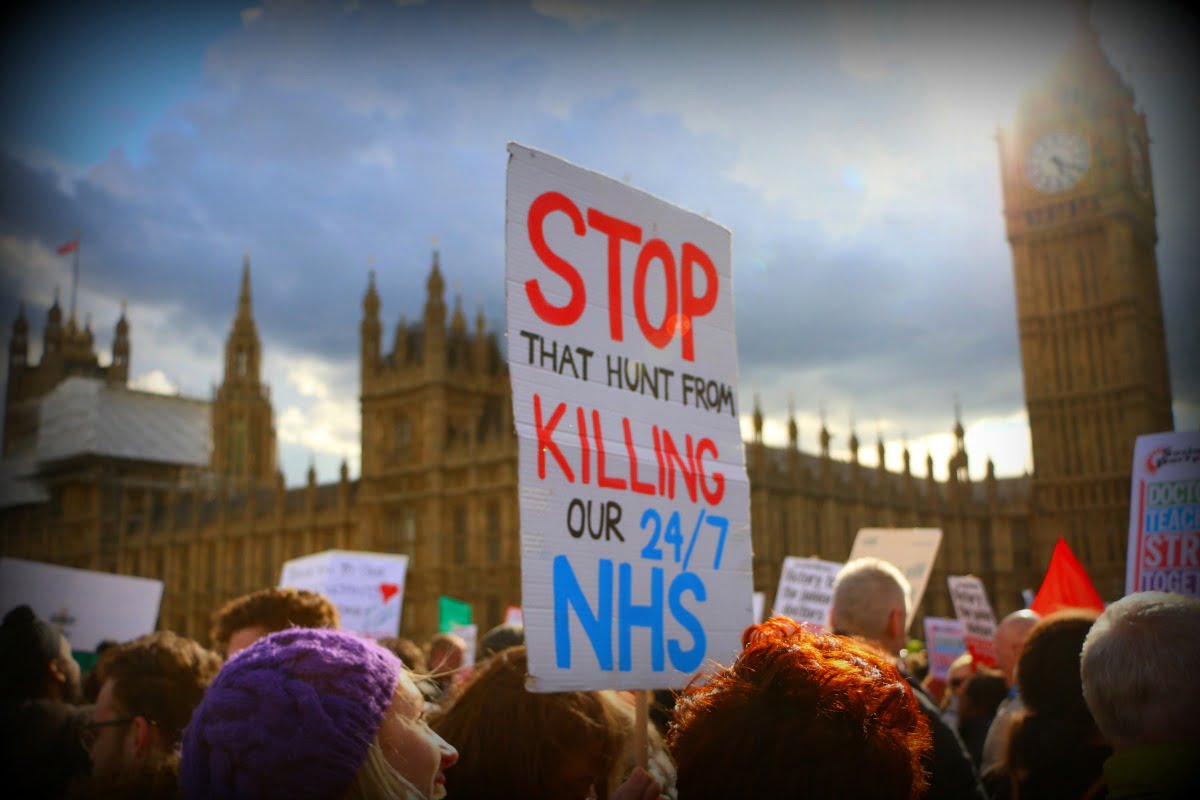Recent reports indicate that three regional NHS services in the UK are predicted to reach a combined shortfall of £2.4 billion by 2020. It is becoming increasingly clear to all – patients, healthcare staff, and politicians – that a crisis is brewing inside Britain’s National Health Service, as the Tory government – and the system they defend – starve the NHS of funds.
It is reported in the NHS Sustainability and Transformation Plans (STP) for Birmingham and Solihull, North Central London and South West London regions that these three NHS services in the UK are predicted to reach a combined shortfall of £2.4 billion by 2020. It is becoming increasingly clear to all – patients, healthcare staff, and politicians – that a crisis is brewing inside Britain’s National Health Service, as the Tory government – and the system they defend – starve the NHS of funds.
The current financial state of the NHS is dire enough. Cancer Research UK reported that in 2015, 132,000 patients failed to see a cancer care specialist within the required 14 days. A third of NHS local authorities are to close A&E departments in the near future and half are to cut the numbers of hospital beds. Earlier this year, meanwhile, junior doctors went on strike about forced changes to their contracts, brought in by the Tories to make them work longer hours on lower pay. The crisis in the NHS is so constant that each report of a new development has simply added to an already deafening cacophony.
It is rapidly dawning on NHS workers that there is no foreseeable way out of the current crisis situation along the current path of Tory cuts and attacks. For years, directives from the top of the organisation have been passed down demanding that the health service become more “efficient” to save money. In the euphemistic name of “cutting costs”, “improving efficiency” and “developing economies of scale”, sections of the health service have merged and split, managerial positions have been replaced, and outsourcing has been introduced. Even hospital milk and bread have been brought in from cheaper sources.
And yet, at the end of the day, these Tory plans have failed to acknowledge that the NHS already runs very efficiently. The problem isn’t the waste of money inside the NHS, but the lack of money being given to fund the NHS.
The latest Tory health secretary, Jeremy Hunt, continues the old trend of being – at best – oblivious to the realities of the situation, and – at worse – consciously destroying the NHS in order to pave the way for privatisation. Hunt claims that the NHS’ problems aren’t just about funding but also about avoiding legal bills through better practice. These wild remarks have had the effect of alienating NHS employees, who clearly aren’t being listened to.
The General Medical Council, meanwhile, has reported that the unease within the medical profession has had a profound impact on doctors’ morale. Fewer doctors each year are continuing with their training to become specialists, simply because the pressure put upon them at work is too great: 582 fewer doctors took the specialist training in 2015 compared to 2012, and 47 % of doctors declared that they did not continue their training straight after foundation year due to burnout.
Saving an NHS that faces major problems in all these areas won’t happen by implementing another programme of “increased efficiencies” from the pages of a university business studies’ textbook, dictated from on high by the Tories and their fat-cat management consultant hirelings. The NHS can only be saved by providing it with the resources and funding that would allow it and its extremely dedicated staff to operate properly and effectively, with high quality patient care and fair working conditions for all employees.
Healthcare is no small matter in society. Something so serious should not be left under the control of an establishment who cannot provide for it, nor the market forces that act only to maximise profits. We must take control of the healthcare system, reverse the outsourcing and privatisation that has taken place, and integrate the NHS as part of a democratic and rational socialist plan of production in order to provide the resources required to give us the health service we deserve.






